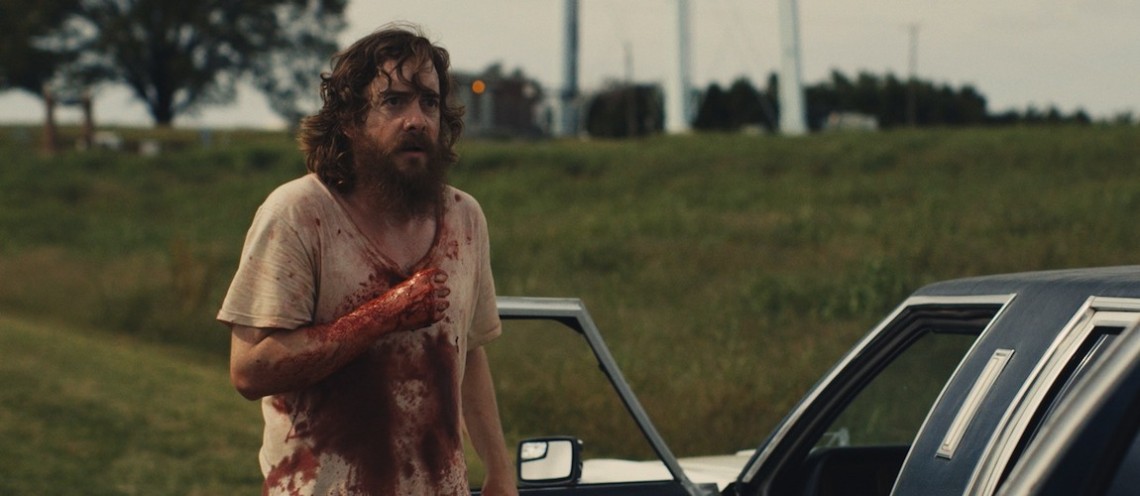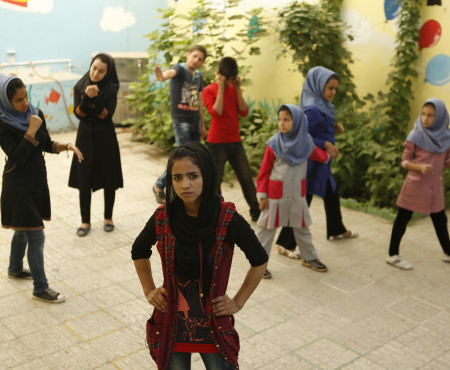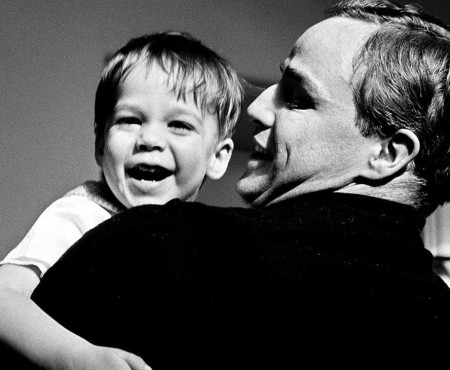Dwight (Macon Blair) is a beach bum, spending his days scrounging recyclables on the Virginia coast and his nights in a gruesome 1990 Pontiac Bonneville. But when he learns that the man who murdered his parents has been released from prison, he embarks on a road trip of revenge. Contrary to the standards of the genre, he exacts that revenge very early in the story. It’s messy in terms of both bodily fluids and consequence, as Dwight soon has the man’s nasty family, the Cleland clan, looking to retaliate. So he returns to his childhood home for the first time in decades, sends his sister and her children off to safety, and battens down the hatches for war.
It’s this early turn that sets the mood for the rest of Blue Ruin, as it slowly upends the audience’s expectations. Dwight at first appears an archetypical force of vengeance, but then he screws up his getaway and leaves a clear trail for those who want his blood to follow. He shaves off his intimidating beard and scraggly mane, and it turns out that he looks a lot like Joe Lo Truglio’s baby-faced younger brother. Dwight’s not a killing machine – he’s just smart, patient, and lucky. He really has no idea what he’s doing. He sets a trap for his pursuers and ends up horribly bungling it. He tries to perform an Anton Chigurh-like self surgery but can’t follow through. He’s a normal guy, which makes his circumstances all the more dangerous and the film’s tension even higher.
Blue Ruin shares more than a wound-cleaning scene with the Coen brothers’ oeuvre. Much of the film radiates their influence, and that’s a complimentary comparison. It’s in director/cinematographer Jeremy Saulnier’s deliberate visual composition. It’s in editor Julia Bloch’s steady cutting. It’s in Saulnier’s script, which balances fraught suspense with understated irony, brought to life by an incredibly naturalistic set of actors. It’s in the local color of rural Virginia, which I can verify as authentic, since I grew up in the region. The film feels accomplished and effortless in a way that’s incredibly rare for an independent genre outing.
Blair is tremendous, a doe-eyed average joe in way over his head. Blue Ruin is all about escalation, and while its sensibility is Coen, its plot is very much like Shotgun Stories (which is still my favorite film directed by Jeff Nichols), twisting about in the absurdity of a feud. Dwight hates violence and was hoping that his revenge murder would resolve things, but of course there is blowback. And so he has to kill again, and the vortex of harm grows in ferocity. A lot of movies pontificate on the meaninglessness of revenge without much conviction, reveling in vigilantes acting as our proxies for the indulgence of our worst instincts before paying lip service to law and order. Blue Ruin actually succeeds in making the whole affair feel tragic.
And yet the film is still effective on that visceral, genre-soaked level. The action is tense as piano wire, using long silence to its advantage. In fact, silence characterizes Blue Ruin, which lets its sparse scenery wash over the audience, allowing viewers enough time to both catch their breath in between the moments of terror and to contemplate that terror. It’s my favorite revenge film since Chan-Wook Park wrapped up his vengeance trilogy.





















2 thoughts on “AFI Fest Review: ‘Blue Ruin’”
Pingback: The 2014 Cinematic Retrospectivus
Pingback: Here Is TV – Daily Primetime Recommendations | Blue Ruin